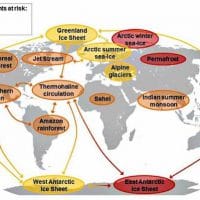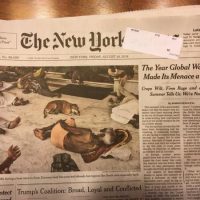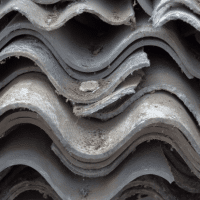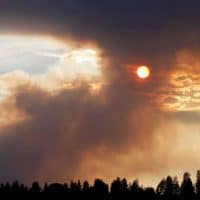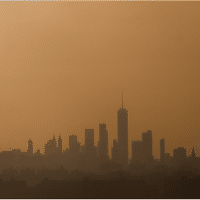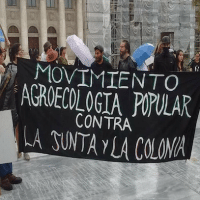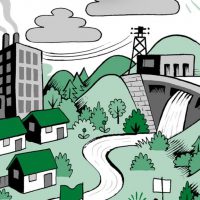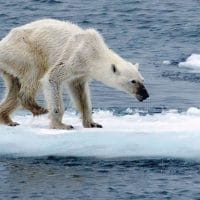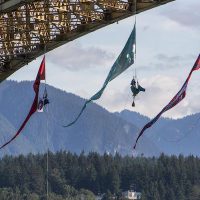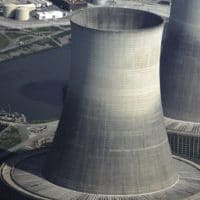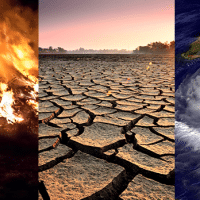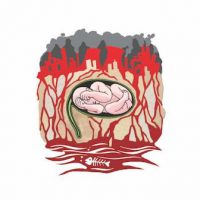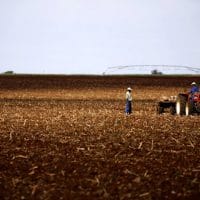-
Climate change in the Anthropocene: an unstoppable drive to Hothouse Earth?
Leading Earth System scientists warn: “The Earth System may be approaching a planetary threshold that could lock in a continuing rapid pathway toward much hotter conditions.… Incremental linear changes to the present socioeconomic system are not enough to stabilize the Earth System.”
-
The fires this time and their implications for ecosocialists
“Deindustrialization.” That’s a word you virtually never hear in the debate around global warming. Not surprising. It’s a word that’s loaded with negative implications: economic collapse, mass layoffs, falling living standards.
-
U.S. now allowing asbestos back into manufacturing and building
The Environmental Protection Agency (EPA) is about to give the go-ahead for the use of Asbestos in manufacturing, building or other use.
-
Science fiction and the angel of history
A review of, ‘Sorry to Bother You’.
-
The hope of ecosocialism
“The gross irrationality of our economic and social system is a measure of what we could do to improve the lives of people and the environment.”
-
Capitalism killed our climate momentum not ‘human nature’
This Sunday, the entire New York Times Magazine will be composed of just one article on a single subject: the failure to confront the global climate crisis in the 1980s, a time when the science was settled and the politics seemed to align.
-
Agroecology in Puerto Rico
The movement for people’s agroecology seeks to empower the peasantry of the island through encouraging collectivism and cooperatives.
-
Making War on the Planet: Geoengineering and Capitalism’s Creative Destruction of the Earth
The enormous dangers that rapid climate change present to humanity as a whole, and the inability of the existing capitalist political-economic structure to address them, symbolized by the presence of Donald Trump in the White House, have engendered a desperate search for technofixes in the form of schemes for geoengineering, defined as massive, deliberate human interventions to manipulate the entire climate or the planet as a whole.
-
Marxian theory & eco-revolution – Prof. John Bellamy Foster
The Marxism 2018 festival, hosted by the Socialist Workers Party (SWP), took place last week in a context of deepening political polarisation across the world.
-
Trump kills science: nature strikes back
The Trump administration’s every move is marked with a strange creepiness as well as confusing messages that can only mean: They don’t get it. Their nefarious “destroy science” mentality promotes insane irreversible carbon emissions in good ole America, ultimately threatening the abilities of farmers to cope with ruinous global heat.
-
Ireland to become first country to divest from fossil fuels
“Countries the world over must now urgently follow Ireland’s lead and divest from fossil fuels,” said Gerry Liston at Global Legal Action Network.
-
Prepare for the worst
It is worse than you thought. Perhaps twice as bad. Perhaps worse than that.
-
The New Postcolonial Economics with Fadhel Kaboub
In this episode, we speak with Fadhel Kaboub (@fadhelkaboub), associate professor of economics at Denison University and President of the Global Institute for Sustainable Prosperity. Fadhel outlines a new critical approach to postcolonial political economy, arguing that re-gaining financial sovereignty is a crucial next step for postcolonial nations hoping to achieve social, economic, and environmental justice.
-
Climbers in Vancouver blockade Trans Mountain oil tanker’s route
Seven climbers have rappelled from Vancouver’s Ironworkers Memorial Bridge and are blocking the path of a tar sands oil tanker, Serene Sea, currently docked at Kinder Morgan’s Trans Mountain pipeline terminal. The tanker was scheduled to leave port this morning.
-
Nuclear power: private profits, social costs
Nuclear power is enormously expensive and yet successive U.S. governments, including that of President Donald Trump, have supported the industry in many ways. The net result is that various costs are passed on to society at large, while the profits accruing from this pursuit are privatized.
-
What you didn’t know about the new global treaty to rule them all
A new report from Corporate Europe Observatory and TNI exposes how the little-known Energy Charter Treaty gives corporations the power to obstruct the transition from climate-wrecking fossil fuels towards renewable energy.
-
June 2018: reflections on 1988 three decades later
Capitalism as a system functions irrationally because social and ecological concerns cannot be taken into account when making business decisions. Profits before all else.
-
Plastics crisis set to intensify as more countries look to restrict foreign waste
Data analysis reveals sharp rise in exports to Malaysia, Thailand, Vietnam and Poland amid concerns of countries being ‘flooded’ by waste imports.
-
In search of a development model that doesn’t leave out people and the environment
Is it possible to have a development model that can work in harmony with people and nature?
-
White farms and black farms: will South African land finally shed apartheid’s proportions?
Many here say that South Africa’s constitution has never been an impediment to land redistribution; the problem was always the political will of the ANC, which abandoned Marxist ideology for a neoliberal approach.

